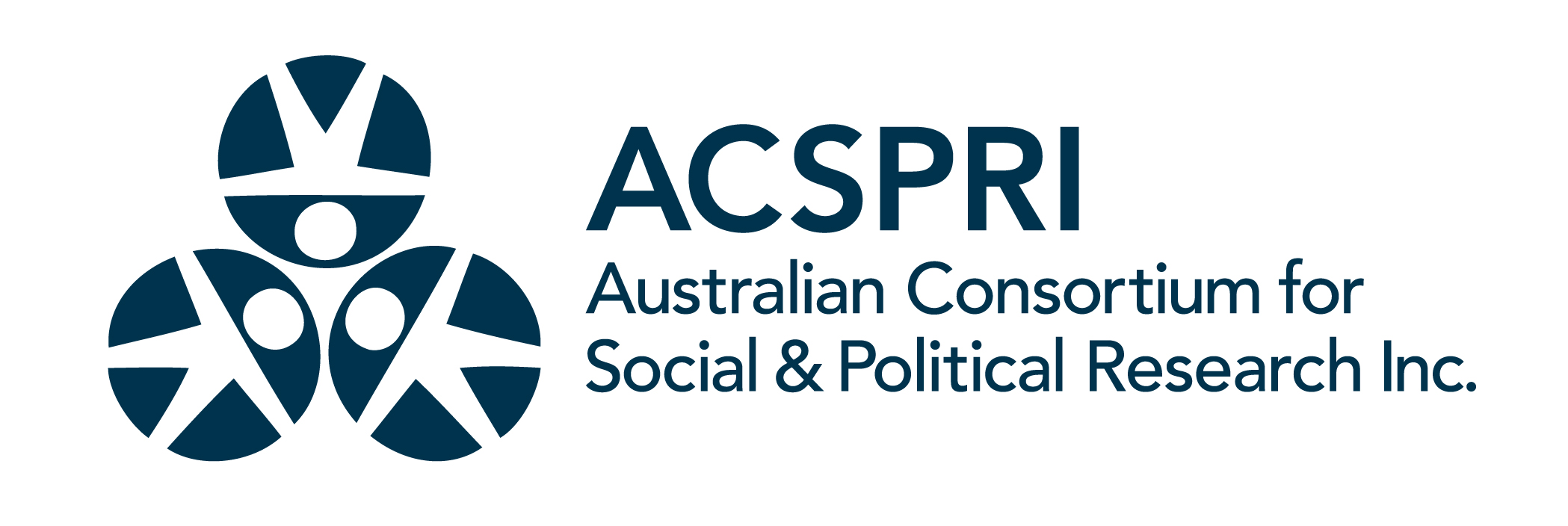Keywords: Courses or GPUs or Research infrastructure or Science or impact analysis or research data
-

Intersect Australia
Intersect helps researchers increase their impact through expert people, a vibrant member...
51 training material30 upcoming event (958 past event)Intersect Australia https://www.intersect.org.au https://dresa.org.au/content_providers/intersect-australia Intersect helps researchers increase their impact through expert people, a vibrant member community and innovative technologies. Our services are targeted at enhancing capability (skills) through training and capacity (resources) of organisations, disciplines and research groups through an embedded team of experts. Intersect provides an extensive range of technology-focused training to researchers and higher degree research (HDR) students across Australia including training courses at the awareness, introductory, and intermediate to advanced levels, covering the breadth of research-relevant digital tools and technologies. The training is delivered by Intersect’s team of experts. /system/content_providers/images/000/000/008/original/atomic.s.taglogo.rgb_3x.png?1633564459 -

Australian Research Data Commons (ARDC)
The Australian Research Data Commons (ARDC) enables the Australian research community and...
61 training material8 upcoming event (145 past event)Australian Research Data Commons (ARDC) https://ardc.edu.au/ https://dresa.org.au/content_providers/australian-research-data-commons-ardc The Australian Research Data Commons (ARDC) enables the Australian research community and industry access to nationally significant, data intensive digital research infrastructure, platforms, skills and collections of high quality data. As a national research infrastructure provider, the ARDC facilitates partnerships to develop a coherent research environment that enables researchers to find, access, contribute to and effectively use services to maximise research quality and impact. /system/content_providers/images/000/000/001/original/ARDC_Docusign_logo_-_296_x_76px_.png?1627455958 -

Pawsey Supercomputing Research Centre
The Pawsey Supercomputing Research Centre is 1 of 2 Tier 1 supercomputing centres in...
7 training material0 upcoming event (33 past event)Pawsey Supercomputing Research Centre http://pawsey.org.au https://dresa.org.au/content_providers/pawsey-supercomputing-research-centre The Pawsey Supercomputing Research Centre is 1 of 2 Tier 1 supercomputing centres in Australia. Pawsey prides itself on incorporating a range of best practices, features and solutions. Key features of the Centre include: - A purpose-built supercomputing building of more than 1000 m2 at Technology Park in Kensington, Western Australia; complete with scalable cooling and electrical services, to accommodate for expanding supercomputing infrastructure within the facility - A unique groundwater cooling system for removing heat from the supercomputer and dissipating this heat via an aquifer, 140 metres below the Centre, with no loss of groundwater. A photovoltaic system which has been incorporated into the building’s shaded façade, plus an extensive PV array on the roof of the building - This installation generates 140 kW of electricity onsite, which acts to offset the electrical and CO2 footprint of the Supercomputing Centre - Automated ‘intelligence’ incorporated into the building, with real-time monitoring, to facilitate efficient operation and support fine tuning of operations to reduce overall power costs /system/content_providers/images/000/000/004/original/PAW_RGB_H.png?1633498197 -

ACSPRI
The Australian Consortium for Social and Political Research Incorporated (ACSPRI) is a...
0 upcoming event (60 past event)ACSPRI https://www.acspri.org.au/ https://dresa.org.au/content_providers/acspri The Australian Consortium for Social and Political Research Incorporated (ACSPRI) is a not-for-profit organisation, broadly aimed at the promotion and enhancement of social science research and methods in Australia. Our consortium of institutional members, include universities, public sector research institutions and not-for-profits. We work to provide benefits and services to our members including: education and professional development in Social Science Research Methods and Research Technology courses. /system/content_providers/images/000/000/021/original/ACSPRI_Logo_Horizonal.jpg?1661921514 -

Heurist Network
### What is Heurist? Heurist is a comprehensive, flexible data management service built...
1 training material0 upcoming event (15 past event)Heurist Network https://heuristnetwork.org https://dresa.org.au/content_providers/heurist-network ### What is Heurist? Heurist is a comprehensive, flexible data management service built specifically for the Humanities, available both as a free service, or for download to a private server (open source). Its development has been driven and informed by dozens of Humanities research projects. Heurist is a human-centered interface to a MySQL (or other SQL server) database. It operates as a hybrid relational / graph database, hiding all the complexity of SQL, tables, relational joins, relational integrity etc. behind (fairly) simple choices. It’s available on a number of non-commercial web services (free to use) and on private web servers. You can also install it on your own server if you wish. ### What we offer We offer frequent training and collquia for our users, indeed for all Humanities researchers who use digital methods and require a database. Our users are a diverse community of researchers across Australasia, Europe, Asia, Africa and the Americas. We also offer one-on-one support and ad-hoc training for projects who use our technology, or individuals who need a hand gettings started with Humanities databasing. /system/content_providers/images/000/000/018/original/h6logo_intro.png?1653544233 -

Biosecurity Commons
A Planet RDC project, Biosecurity Commons delivers a cloud-based decision-support platform for...
2 training materialBiosecurity Commons https://www.biosecuritycommons.org.au/ https://dresa.org.au/content_providers/biosecurity-commons A Planet RDC project, Biosecurity Commons delivers a cloud-based decision-support platform for modelling and analysing biosecurity risk and response. Biosecurity Commons will empower researchers and decision-makers to produce consistent and transparent results without requiring coding experience or high-end IT equipment. The platform will offer users everything they need to collaboratively solve common biosecurity problems with an intuitive point-and-click web interface that provides trusted datasets, repeatable scientific workflows, a secure workspace and cloud storage. /system/content_providers/images/000/000/036/original/biosecurity-logo.png?1712045188 -

Atlas of Living Australia
The Atlas of Living Australia (ALA) is a collaborative, digital, open infrastructure that pulls...
0 upcoming event (1 past event)Atlas of Living Australia https://www.ala.org.au/ https://dresa.org.au/content_providers/atlas-of-living-australia The Atlas of Living Australia (ALA) is a collaborative, digital, open infrastructure that pulls together Australian biodiversity data from multiple sources, making it accessible and reusable. The ALA helps to create a more detailed picture of Australia’s biodiversity for scientists, policymakers, environmental planners and land managers, industry and the general public and enables them to work more efficiently. The ALA is the Australian node and a full voting member of GBIF – the Global Biodiversity Information Facility – an international network and data infrastructure funded by the world’s governments and aimed at providing anyone, anywhere, open access to data about all types of life on Earth. /system/content_providers/images/000/000/017/original/ALA_Logo_Inline_CMYK.jpg?1652413583 -

Language Data Commons of Australia (LDaCA)
Australia is a massively multilingual country, in one of the world’s most linguistically diverse...
0 upcoming event (2 past event)Language Data Commons of Australia (LDaCA) https://www.ldaca.edu.au/ https://dresa.org.au/content_providers/language-data-commons-of-australia-ldaca Australia is a massively multilingual country, in one of the world’s most linguistically diverse regions. Significant collections of this intangible cultural heritage have been amassed, including collections of Aboriginal and Torres Strait Islander languages, Australian Englishes, and regional languages of the Pacific, as well as collections important for cyber-security and for emergency communication. Language Data Commons of Australia (LDaCA) is integrating this existing work into a national research infrastructure while also securing at-risk collections and improving access to under-utilised collections. LDaCA is thus ensuring that these invaluable resources will be available for analysis and reuse in the future, and that they will be managed in a culturally, ethically and legally appropriate manner guided by FAIR and CARE principles. The Language Data Commons of Australia (LDaCA) project receives investment from the Australian Research Data Commons (ARDC) through its HASS and Indigenous Research Data Commons program. The ARDC is funded by the National Collaborative Research Infrastructure Strategy (NCRIS). /system/content_providers/images/000/000/041/original/logo.jpg?1724905018 -

Astronomy Data And Computing Services (ADACS)
Our Vision is to provide astronomy-focused training, support and expertise to allow astronomers...
Astronomy Data And Computing Services (ADACS) https://www.adacs.org.au https://dresa.org.au/content_providers/astronomy-data-and-computing-services-adacs Our Vision is to provide astronomy-focused training, support and expertise to allow astronomers to maximise the scientific return from data and computing infrastructure. ADACS is delivered jointly by Swinburne University of Technology, Curtin University, and Macquarie University. ADACS is funded under Astronomy National Collaborative Research Infrastructure Strategy (NCRIS) Program via Astronomy Australia Ltd (AAL). /system/content_providers/images/000/000/033/original/ADACSLogo.png?1708671870